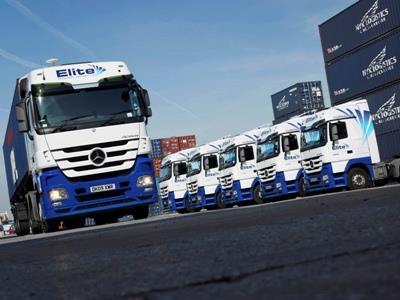
Elite Transport Services has filed a proposal for a company voluntary arrangement (CVA) with Manchester County Court, ahead of a creditors meeting on Friday (8 February).
A spokesman for the container haulier said it was “hopeful of a positive result” when votes from creditors over the proposed financial restructuring of the firm were collated at the end of the week.
He added that the proposed credit terms are dependent on major creditor HMRC but “indications from them are very positive”. According to documents seen by Motortransport.co.uk Elite owes HMRC some £1.5m, while the credit terms of the CVA is understood to be 37 pence in the pound for unsecured creditors.
Elite has spent the past few months restructuring the business. Last month it emerged that Elite had made all of its drivers at Southampton redundant after claiming that port container work for the company had plunged by 8% - as the modal shift from road to rail continued out of the port. “The combination of the two [volume fall and modal shift] had put the port operations for Elite under severe pressure,” he said. “But they have been working on increasing their rail network. That has been a much more profitable business.”
He also added that operations at its Felixstowe depot had now ceased following a downturn in volumes. Both sites are still running containers for some customers on a subcontracted basis. Its operations in Thamesport remain open.
There has been a total of 78 redundancies at Elite as part of the restructure of the business, comprising of 64 drivers and 14 office staff. Its fleet has reduced by 73 units to 105.
Collease general manager Duncan Scillitoe confirmed that the truck and trailer hire firm had been affected: “They have been a customer of ours for years so it has come as a shock. We will work closely with them, just as we work with all our customers during tough times.”
Contract hire firm BRS is also an unsecured creditor. A spokeswoman for the firm said that in November 2012 it had taken back 25 Renault Premium tractors from Elite following indications that the company was struggling.
“BRS were proactive in recognising the difficulties and retrieving the main assets,” she said.













